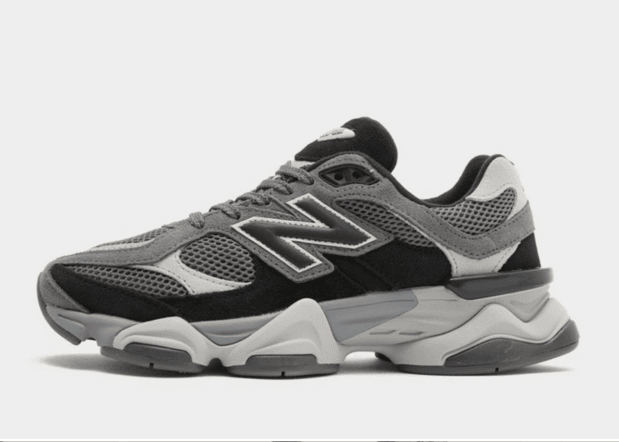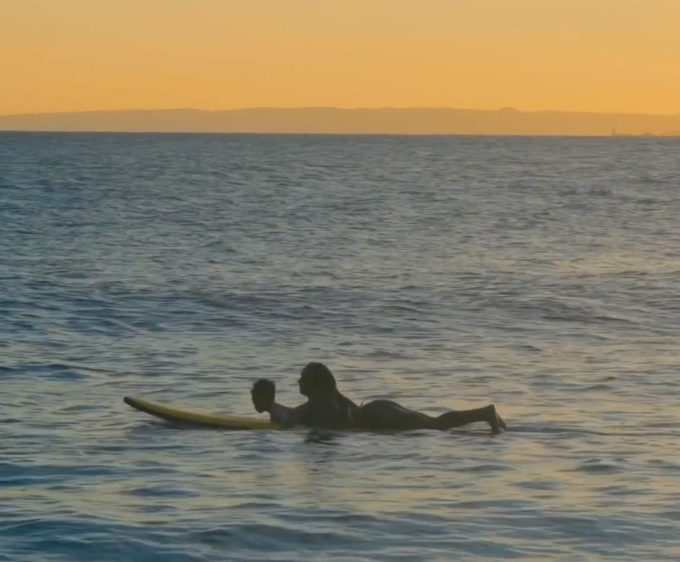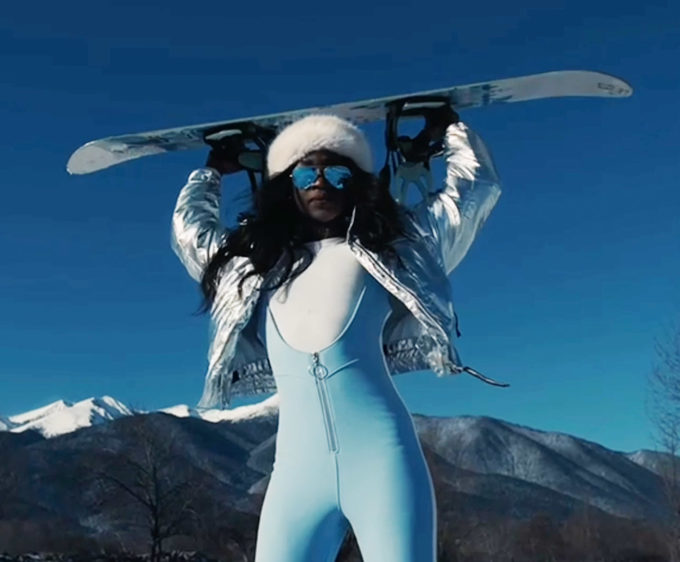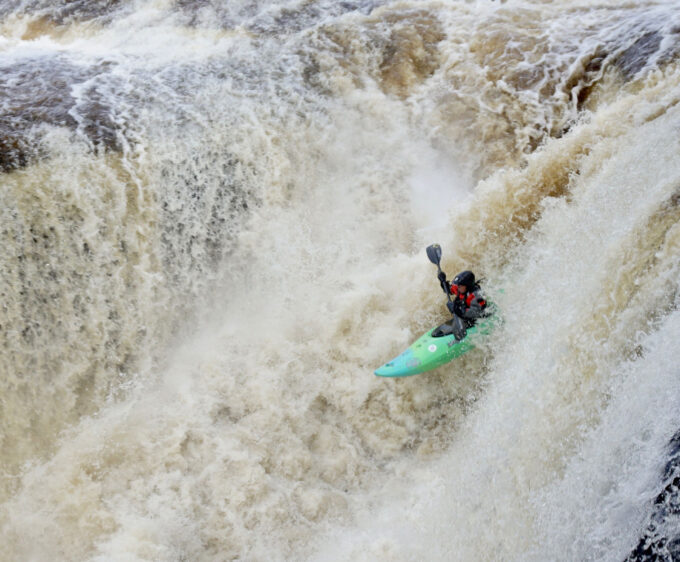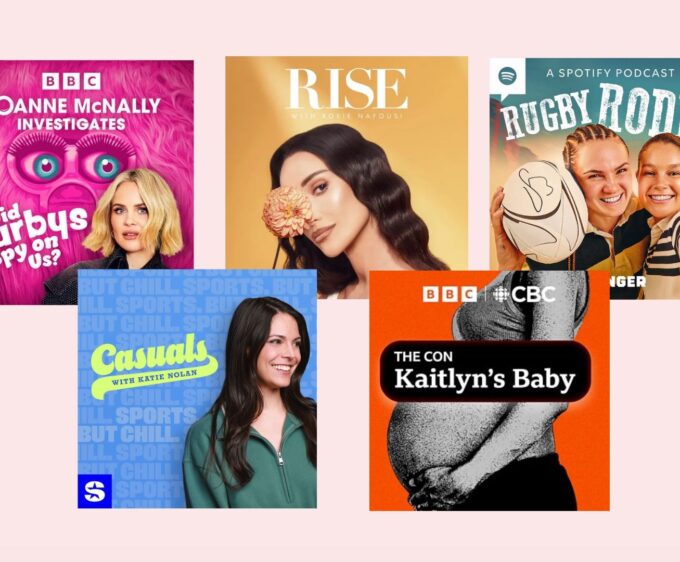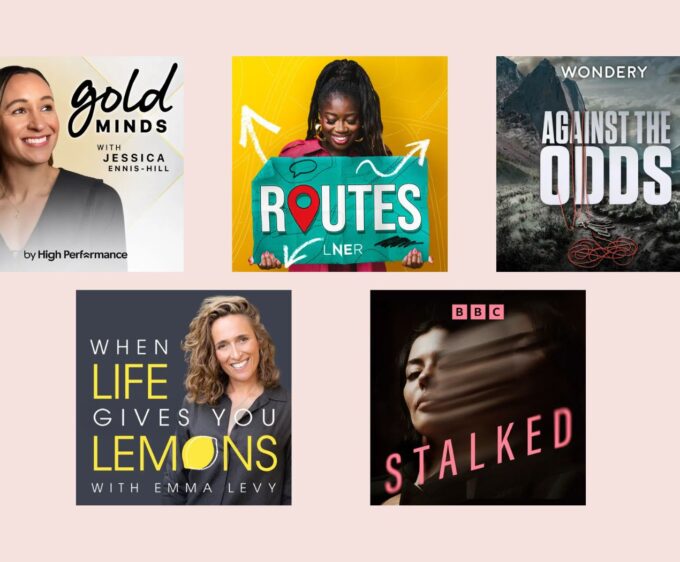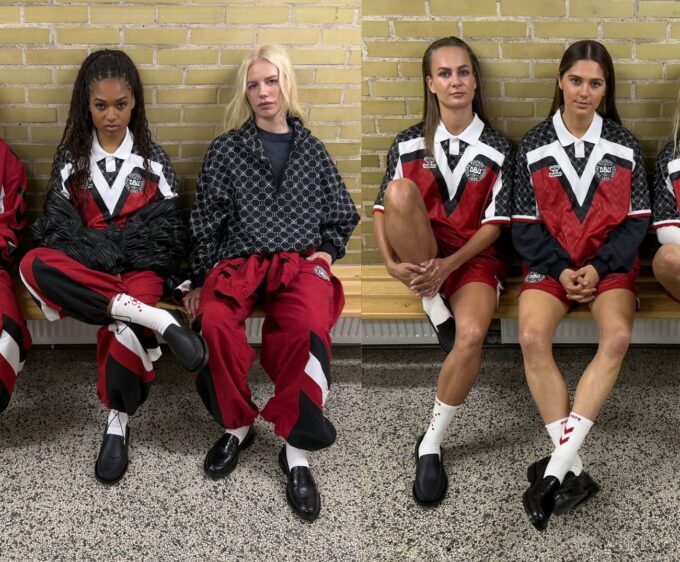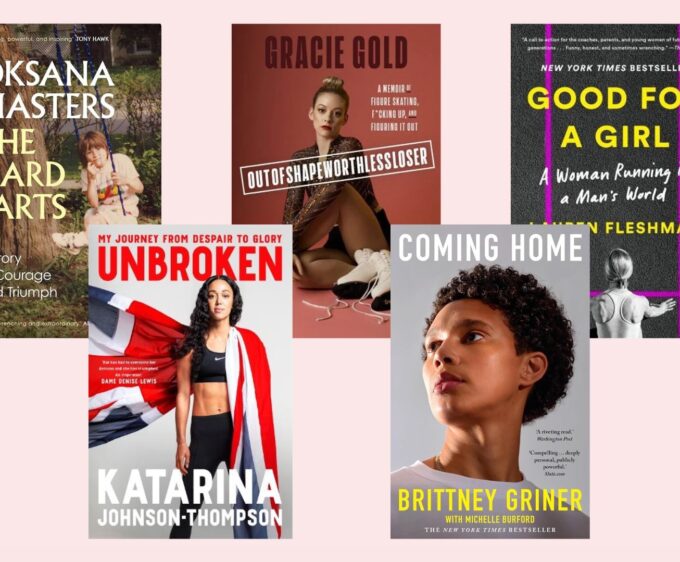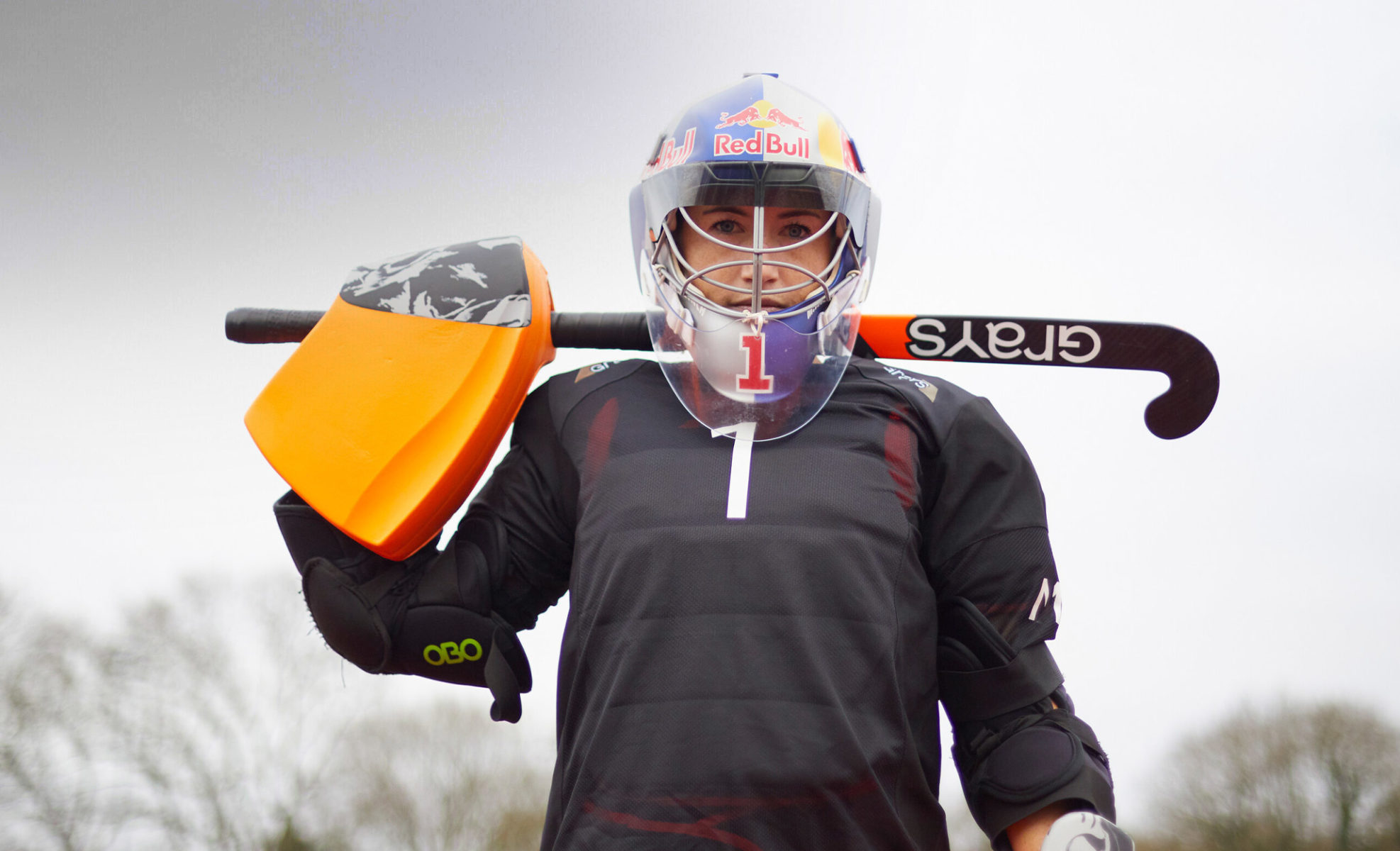
Golden Goalie
What’s her secret: determination and talent or her pair of lucky socks? We chat to hockey player Maddie Hinch about the Olympics, her career and that essential kitbag item
By Isabelle Aron
Once when Maddie Hinch was getting ready for a big hockey game, all hell broke out in the changing room. An essential part of her pre-game ritual was thrown off course: her lucky socks were missing. “It was chaos,” the 33 year-old professional hockey player recalls. Her teammates went into overdrive to help find them. “I was like: I can’t play without them!” she says. “We’d won the last six games. I thought: we will lose without my socks.” Eventually, she found them – someone had accidentally taken them out of the clean laundry. “It was not a good day for that person,” she laughs.
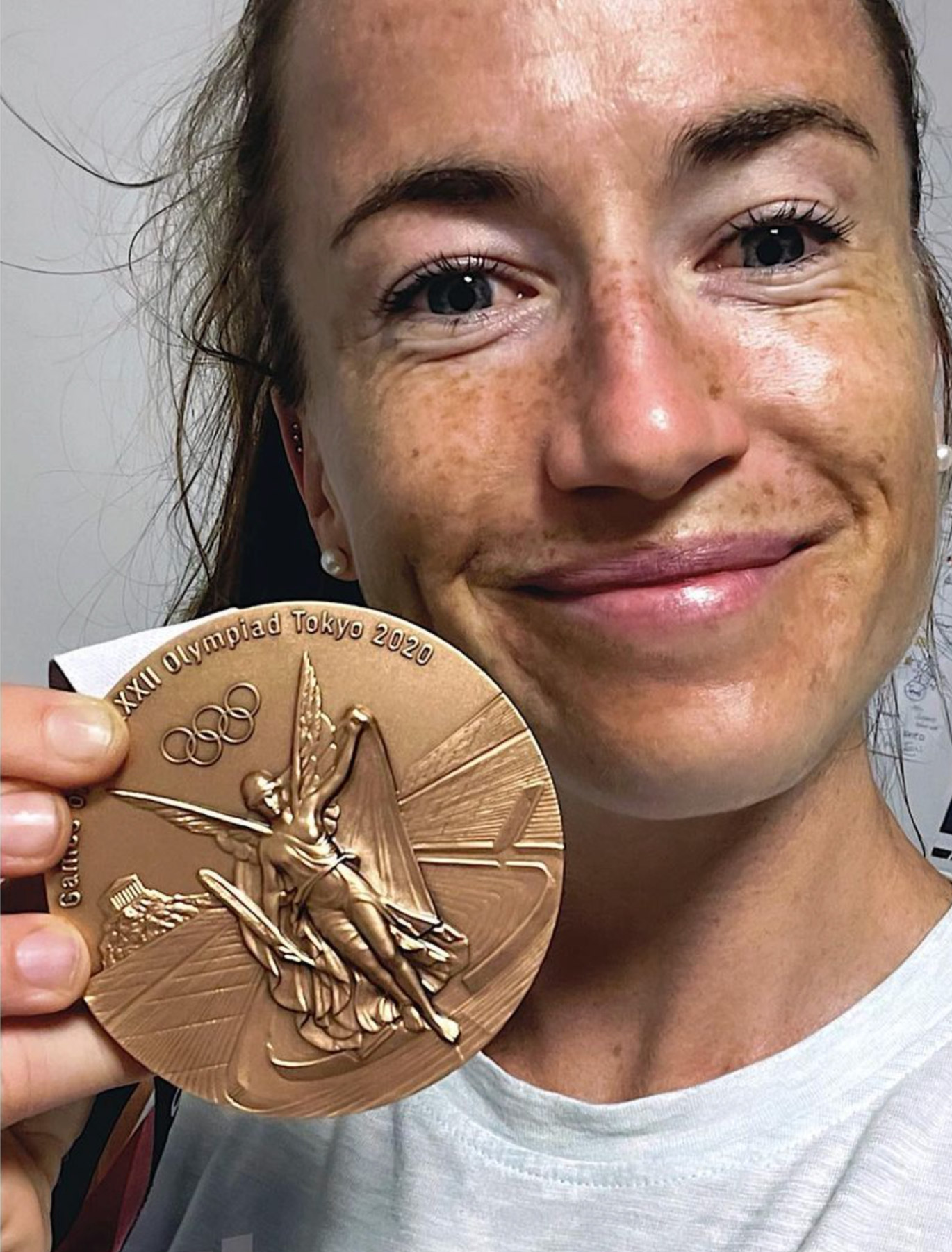
These days, she doesn’t just have one pair of lucky socks – she’s got a few in rotation. Although, given her list of accolades and achievements, it’s clear that Maddie doesn’t just rely on luck. She became a household name after the Rio 2016 Olympics when she represented team GB and saved all four penalties in the dramatic shoot-out against The Netherlands, bringing home a gold medal. With interest in hockey rising after Rio, she set up her own coaching company for hockey goalkeepers, MH1 Coaching. She’s won the International Hockey Federation award for the world’s best women’s goalkeeper three times. And last year, at the Tokyo Olympics, she triumphed in a penalty shootout again, scoring a bronze medal. When we speak, she’s in the Netherlands, where she plays with HC Tilburg (she lives with her French bulldog called Willow, who’s also very much at home at a hockey ground. “She thinks Tilburg hockey club is her second home. She does what she wants, runs around everywhere, everyone knows who she is.”)
But all of this might have never happened were it not for a twist of fate when Maddie was 13 years old. Her dad was in the navy, so she and her family moved around a lot. She was constantly changing schools, until she went to Hazlegrove School in Somerset. It was here that a teacher noticed her skills in a game of rounders, where she would dive dramatically across the field to catch balls. “Apparently they saw some technique in my rounders game that meant I’d be a good goalie,” she says. “But to this day, I still think it was because I was the new kid. Back then, no one ever wanted to be the goalkeeper – it was always the last picked position.” She said she’d give it a go, but she was not exactly keen. “I thought it sounded terrible. I’d only really ever understood team sport from a football perspective. I always thought the goalies stood there doing nothing.” Does she think about that as a sliding doors moment? “I’m very grateful to that rounders coach. You do wonder in life, if she hadn’t said that, where would I be now?”
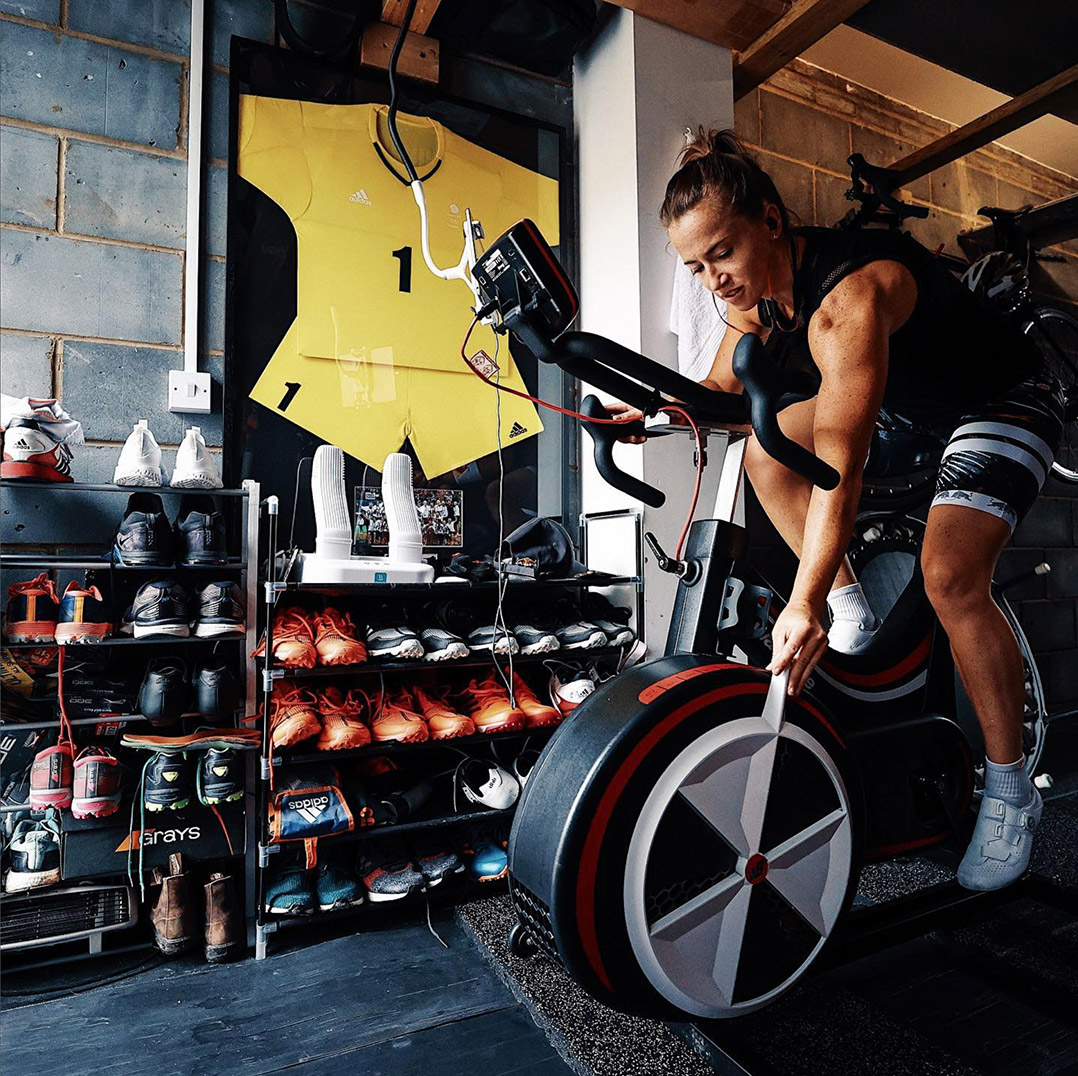
Maddie says she was always sporty, but that moment on the field at her school was the very start of her journey to becoming a pro hockey goalie. Right now, she’s bracing herself for one of the busiest years of her career. After this season with HC Tilburg wraps up at the end of May, Maddie is heading back to the UK, not to chill out and catch up with friends and family or go to her favourite Indian takeaway where they know her by name (although hopefully she’ll have time for some of that), but to go straight into training with the national team. She’ll be preparing for the Hockey World Cup in July and Commonwealth Games in Birmingham straight after. “It’s a full summer,” she says. “It’s one of the busiest I’ve ever known.” She seems to thrive on being busy. Our chat coincides with her “day off”, which started with Pilates at 8am, followed by training in the gym until noon, after which she spent the afternoon working on plans for her coaching company. Does she ever get time to properly relax? “If I have a bit of downtime, I’m all for sitting on the sofa with my dog and watching a good Netflix series.”
She loves dramas like Ozark, any shows about dogs (“As long as they don’t die, I can’t handle that.”), and right now, she’s particularly into a real life show about New York doctors. “It’s good for putting things into perspective,” she says. “When I see these guys having to do brain surgeries, I’m like: why am I stressing about hockey?” She has a point. But that’s not to say that being a goalie doesn’t have its own unique challenges. “Goalies are a special breed,” she explains. “You have to be a little bit different to be willing to stand there and have a hard ball hit at you.” Of course, she does wear padding to protect herself from flying balls, but carting all that kit around is not fun. “I always say that I’m going to burn my goalie bag when I finish,” she says. “It’s this massive bag that you carry everywhere and it has loads of kit in it that probably doesn’t smell great.” Still, wearing it does help adjust her mindset. “I’m definitely much braver with it on,” she says. In fact, she tells the kids on her coaching courses to think of the kit like “a superhero outfit”. With their helmet and padding on, she tells them: “You can be whoever you want to be, no one really can see you. You can just be that superhero.”
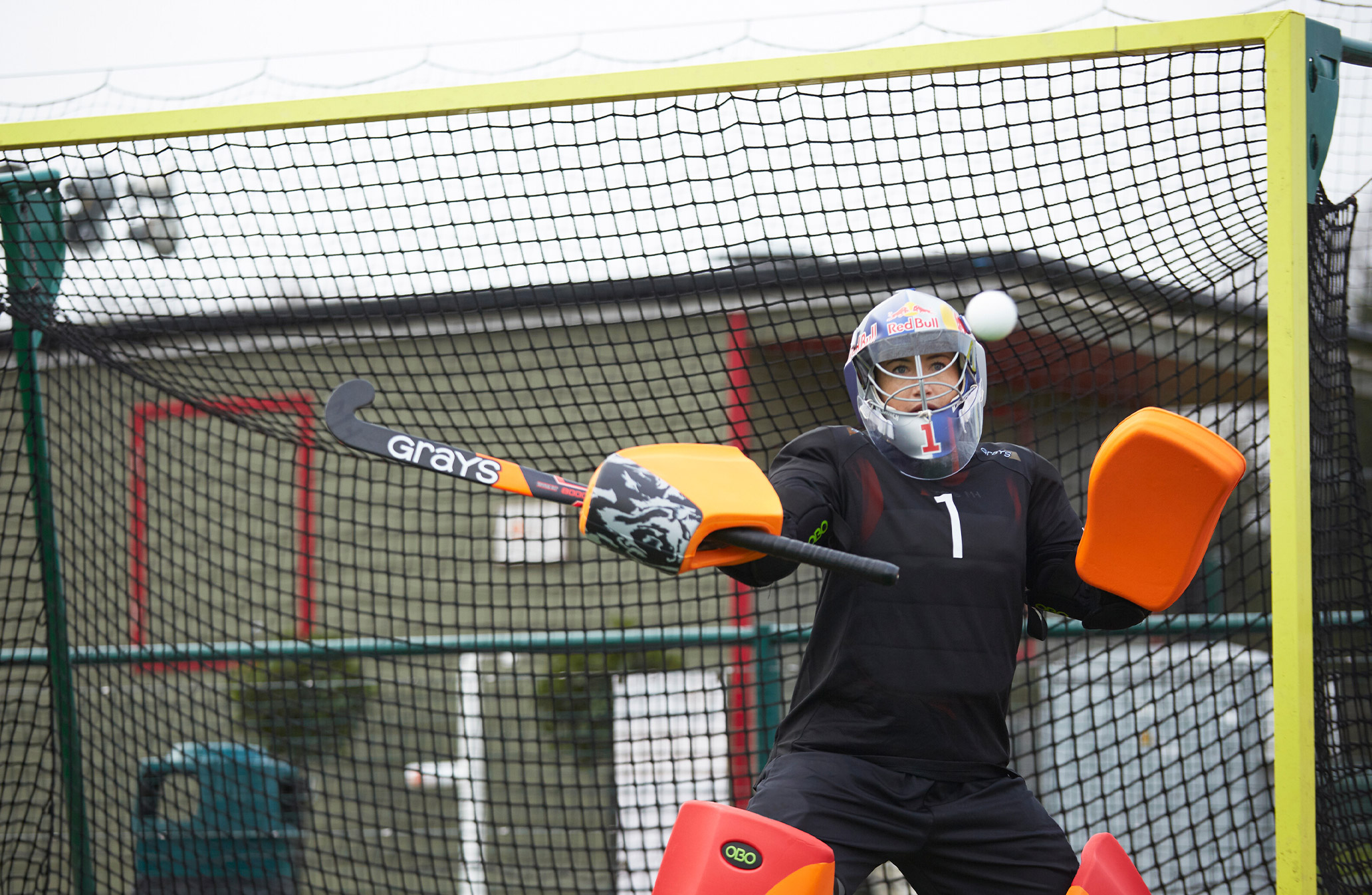
Golden
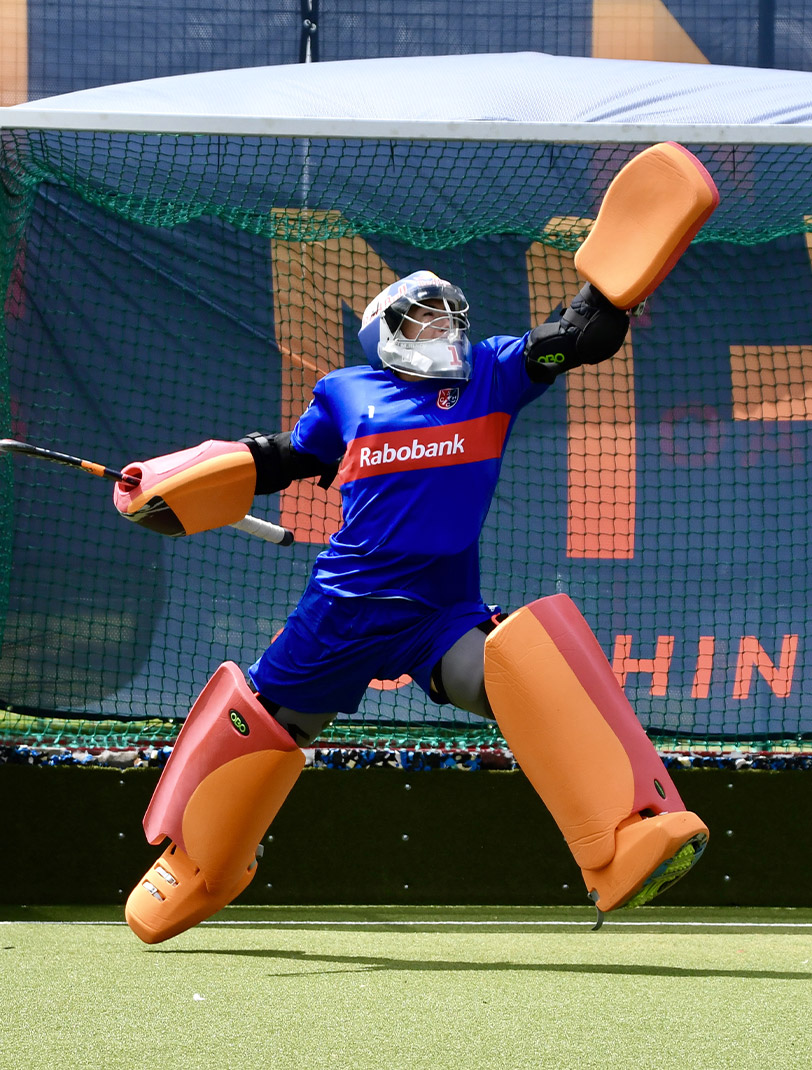
As well as the physical demands of being a goalie, there’s the mental pressure, too. “It’s the most unforgiving position. Mentally, you have to be pretty tough. You’re literally the difference between winning and losing,” she says. “You have to be robust and willing to park mistakes quickly, but also be excited for the opportunity to have a positive impact rather than fear making a mistake.” For Maddie, those moments of “positive impact” (like saving every single goal in a penalty shoot-out) is what she loves about being a goalie. “I’ve been so fortunate to have such big moments on big stages. When those moments happen, the feeling is intoxicating and so rare that it’s all worth it. I don’t think you can replicate that feeling across any other position.”
That feeling of flying high is what she experienced at the Rio 2016 Olympics, which she says will always be her career highlight. “It’s a historical moment that people will talk about forever. And to be a part of that kind of history is something that is never going to be topped.” But after that highest of highs, came an extreme low. “For the first couple years, I didn’t handle it well at all. I wasn’t prepared to be thrown in the limelight,” she says. “I felt like I had to be the superhero that everyone described me as after that final. I made mistakes in that tournament but all people were talking about was this perfect game and it was so not the truth.” The pressure got to her as she strove for “a level of perfection that quite frankly doesn’t exist”.
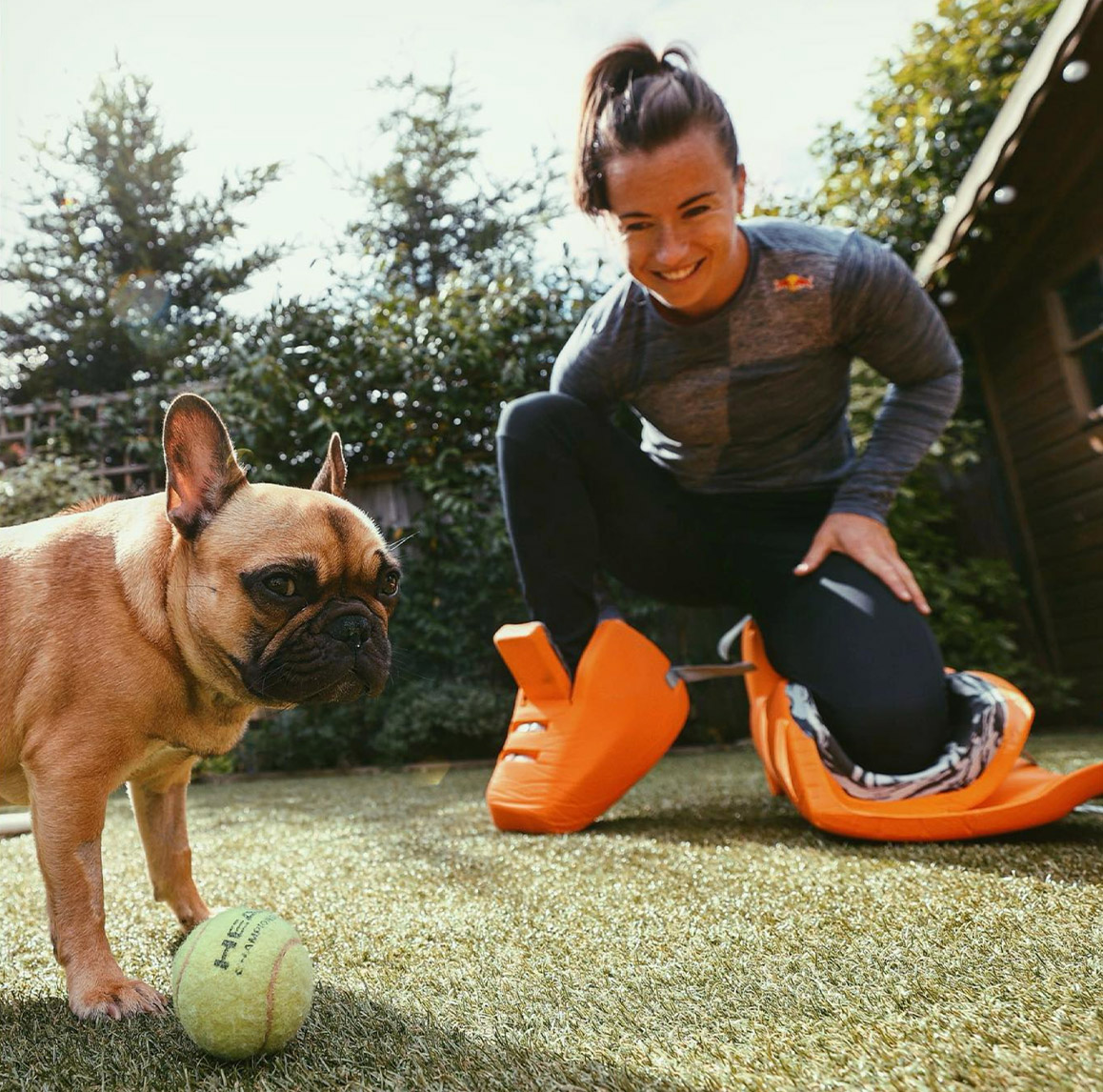
Maddie felt unhappy and burnt out. Something had to give. So, in 2018, she decided to take a break from hockey. Her other passions are travelling and scuba diving, leading to her going to Australia by herself. “I spent four weeks doing things on my bucket list, like scuba diving,” she says. “It gave me time to put things into perspective.” Eventually, she started to miss hockey, which is when she knew she was ready to return – this time, with a new mindset. “I needed some time to press the reset button and come back with a different perspective on what was important – and it certainly wasn’t how many balls I stopped. I’m still very competitive but I put a lot of emotional energy into other parts of it now, to make sure I’ve got a better balance.” She returned to professional hockey in 2019 but mentally, she found herself feeling very up and down. Eventually, in early 2020, she was diagnosed with depression.
She says the diagnosis helped her make sense of what she’d been going through. “I was relieved, because I was so confused about what was going on. After that diagnosis, I came out feeling 100 kilos lighter because I finally had an answer,” she says. “Depression comes with extreme highs and lows, and the lows just didn’t make sense anymore. You start to blame yourself and almost hate yourself for the way you feel and the way you behave and the way you’re affecting others.” For Maddie, being open about her depression and talking about mental health in sport is important. “If you can go to the physio for a sore arm, it should be just as easy to go and see a psychologist if you’re struggling mentally.” Telling her teammates in England was tough, but she wanted to demonstrate that these feelings are normal. “It was very scary for me to show that vulnerability, especially in front of some of the 18-year-old players. To them, I’m probably a bit of a rock, and the reality is I wasn’t. I know the impact of me sharing that was hugely positive. I want them to think that if they feel like that one day, they can just say it.”
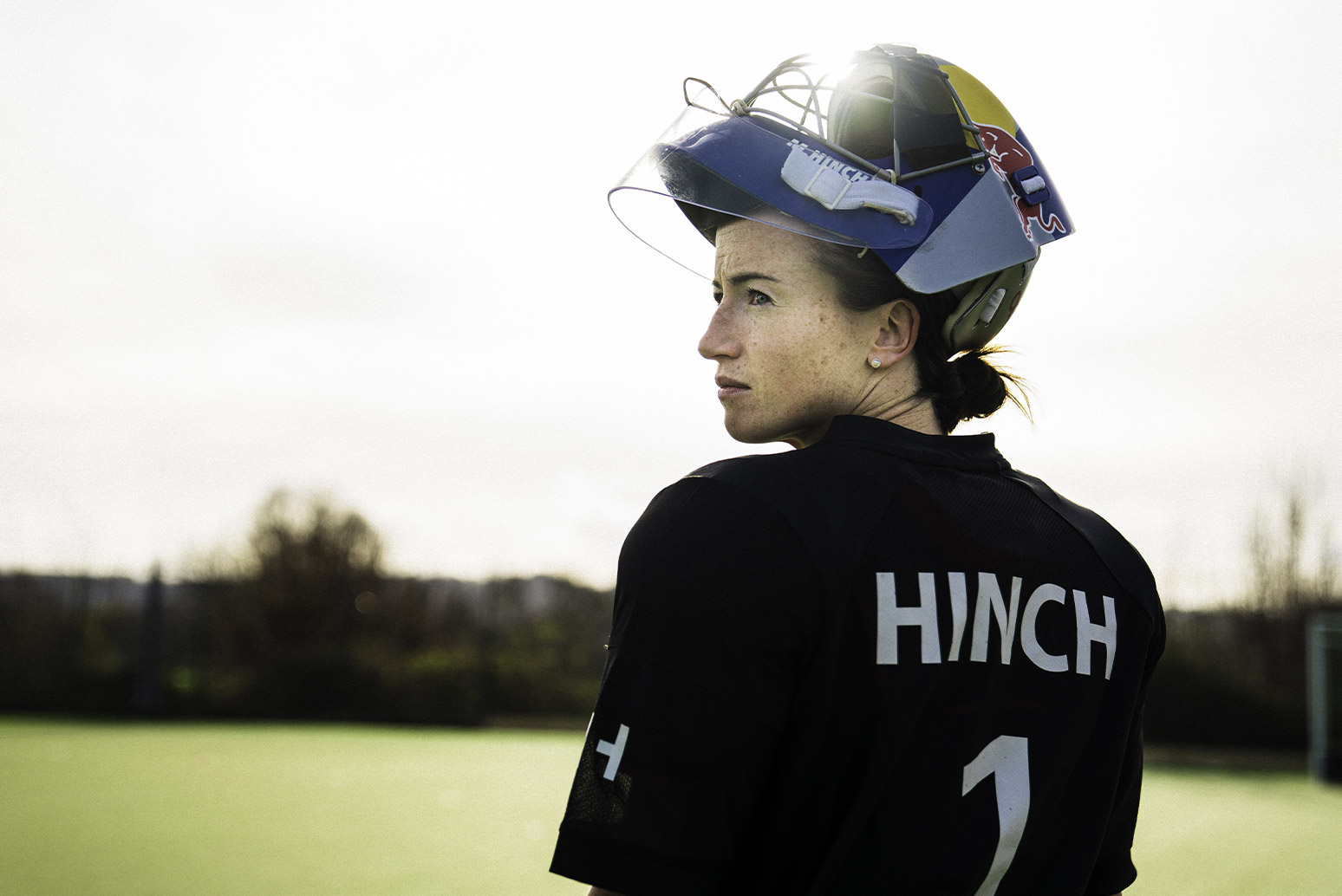
When it comes to being a role model for other women, she hopes that by just being herself and being visible, she can inspire others. “I’ve been through a lot of the struggles that a lot of young female sports players have. Thinking: ‘Is this cool? Am I okay to be seen kicking a football around with the boys?” These days, she has learned not to worry about what others think: “I’m a goalkeeper and I’ve got all this padding on – I don’t really care too much about my image.” Ultimately, she wants young girls to see her and know that they could be that person too. “If my story can inspire one female athlete to want to do what I do and not care about all that stuff then great, I’ve achieved what I want.”
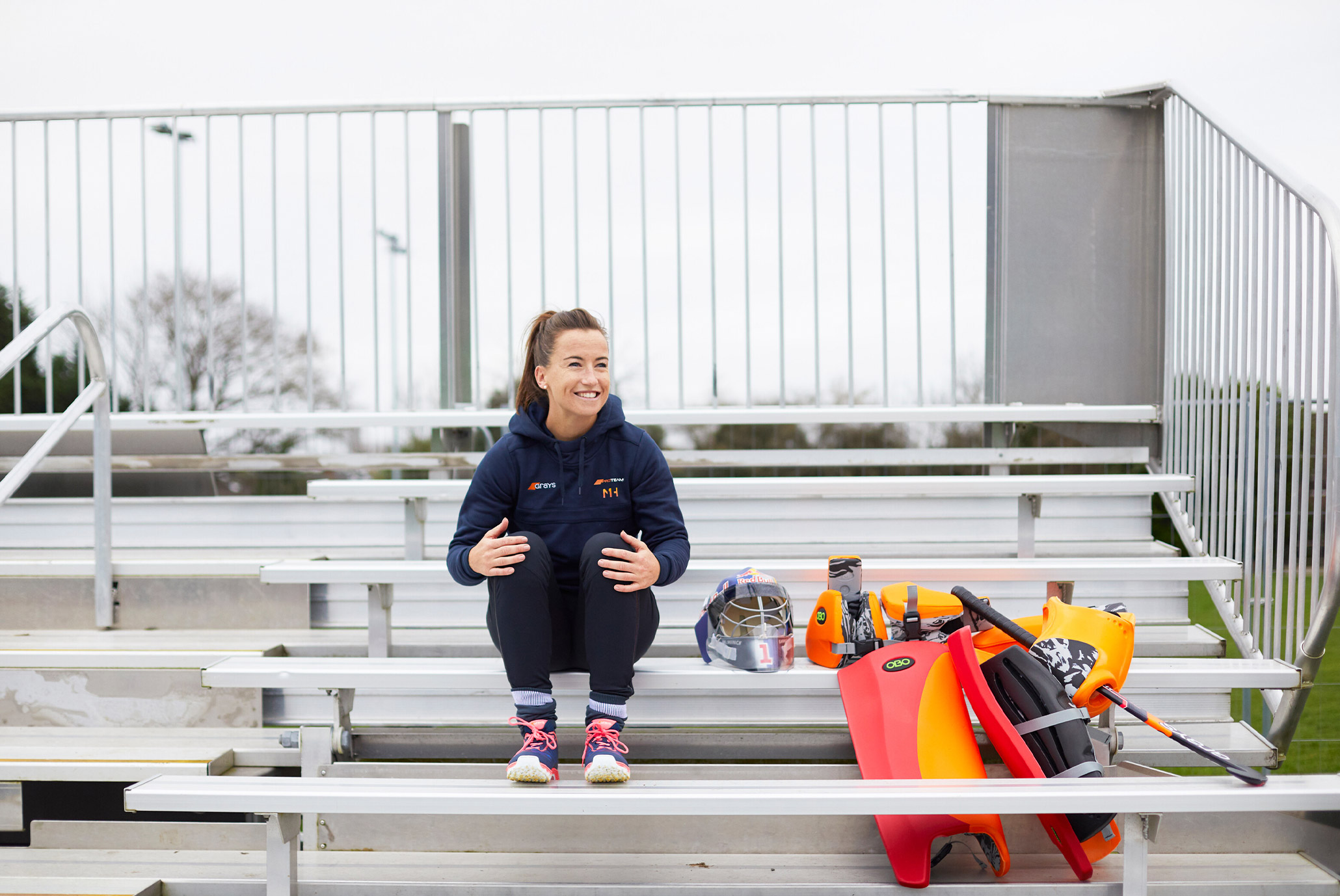
Editorial Design By Root
